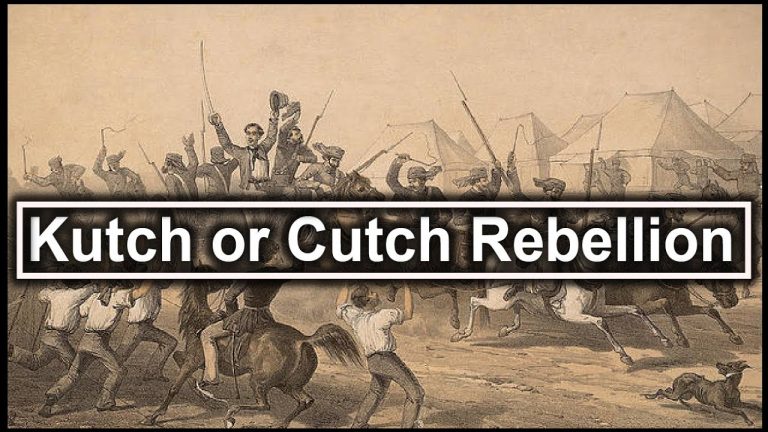
In 1816, Kutch was the first to erupt. Even a devastating earthquake three years later, in 1819, could not dampen the spirits of a band of revolutionaries.
Neha Grover
Kutch or Cutch (Pronounced as Kachchh) is an ancient land with a significant historical age. It is called Kachchh due to its geological features and turtle-like landform. This name can be found in ancient history.
The Kutch Rebellion, headed by its leaders, lasted from 1816 until 1832 in various forms. The power struggle between the monarch and the 12 chieftains escalated into rebellion. The throne was established in 1816 as a result of a pact signed by Rao Bharmal II, the ruler of Kutch, and the British. This article will explain about the Kutch Rebellion (1816-1832). This was arguably the first uprising against the British Raj.
Long before the famous ‘First War of Independence’ in 1857, there was a determined effort to oust the British from a corner of the country. In 1816, Kutch was the first to erupt. Even a devastating earthquake three years later, in 1819, could not dampen the spirits of a band of revolutionaries.
Kutch Rebellion
In 1816, the British signed a treaty with Rao Bharmal II of Kutch that granted the royal authority. However, there was a power struggle going on between the maharaja and a group of chieftains. The British meddled in Kutch’s internal feuds, and in 1819, Rao Bharmal II assembled Arab and African forces with the strong purpose of driving the British out of his domain. The chieftains were also on the side of Rao Bharamal.
Rao Bharamal, the Kutch monarch, was beaten and overthrown by the British in favor of his young son. With the assistance of a regency council, a British resident administered the region as the de facto king. The regency council’s administrative improvements, along with disproportionate land valuation, sowed seeds of dissatisfaction.
Meanwhile, some of the chieftains persisted in their struggle against foreign control.
The news of British reversal in the Burma War spurred the chiefs to rise in revolt and seek Bharamal II’s reinstatement. After considerable military efforts failed to manage the situation, the Company’s leaders were forced to adopt a more conciliatory approach.
Rao Bharmal II assumed control of the state, and Chief Minister Hansraj was handed the fiefdoms of Anjar, Bhachau, Bhadargad, and Kanthkot in 1815.
When Rana Hansraj refused to surrender, the British force led by Colonel East and the forces of Gaekwad from Baroda State stormed Anjar.
They took over the fort of Anjar, then the port of Tuna. In 1816, the army marched towards Bhuj, encamping at Lakond.
Captain MacMurdo was appointed as the British Resident at Bhuj and Collector of Anjar in 1816, when Rao Bharmal II accepted British suzerainty.
The British forces stormed Bhuj in 1819, with the help of several Jadeja lords, and defeated Rao Bharmal II.
Renowned historian Bipin Chandra in his ‘Modern India’ notes: “Hundreds of such uprisings have been recorded by historians. Perhaps the most famous of these are the Kutch Rebellion, the Kol Uprising of 1831 and the Santhal Uprising of 1855. The Kutch Rebellion, led by its chiefs, lasted in one form or another from 1816 to 1832.”
___________________
Courtesy: PREPP